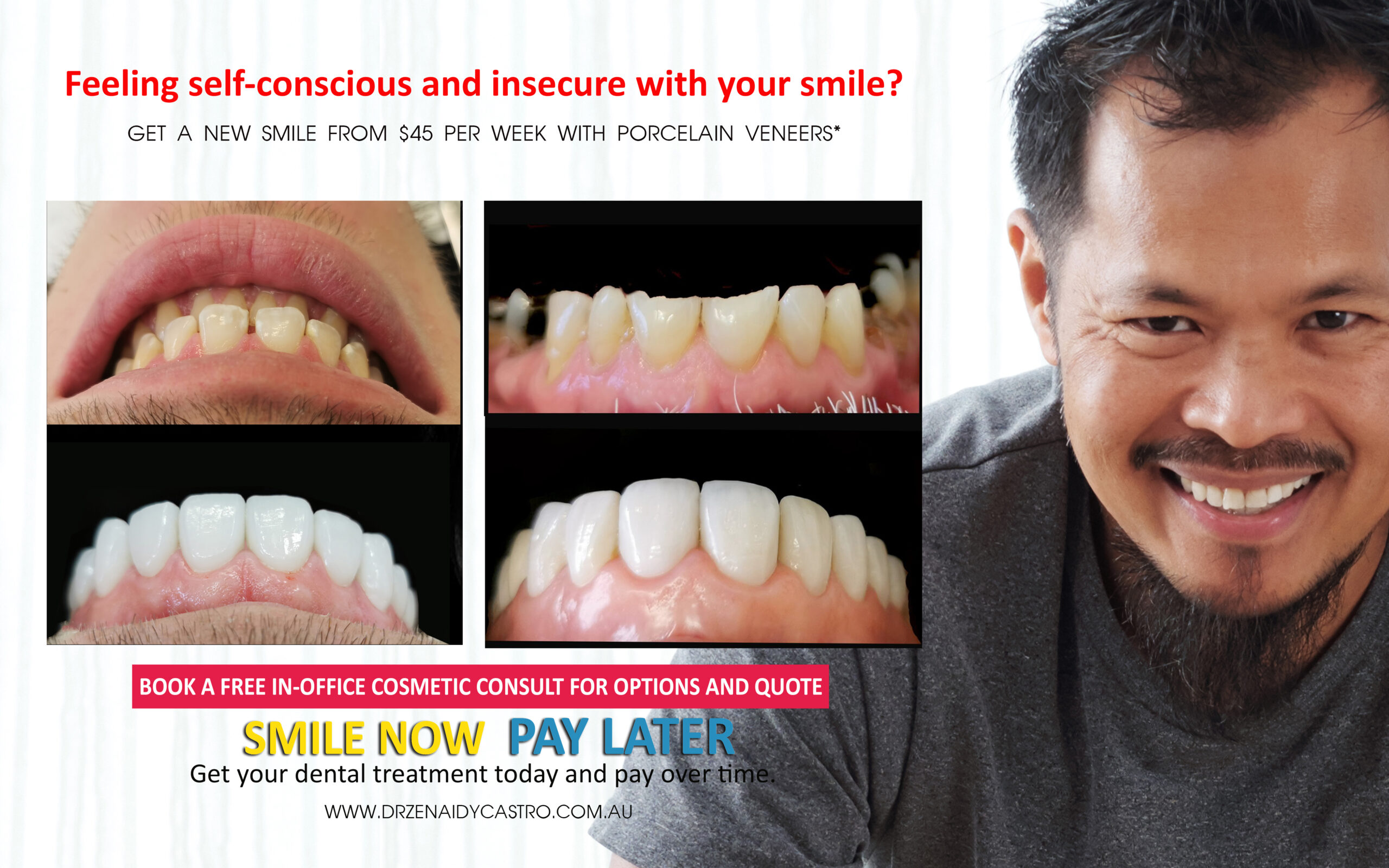

✨Proven strategies to help your child overcome dental anxiety and fear
✨Expert pediatric dental tips from experienced Melbourne CBD & Noble Park North dentists
✨Safe, gentle approaches that build trust and confidence in young patients
✨Parent-friendly guidance to make dental visits stress-free for the whole family
✨Evidence-based techniques used by leading children’s dental practices
✨Transform your child’s dental experience from fearful to positive
As parents in Melbourne CBD and Noble Park North, we understand that managing dental fear in children is one of the most challenging aspects of maintaining your child’s oral health. A visit to the dentist can feel overwhelming for young minds, especially during their first appointment or after a difficult previous experience. While you recognize the importance of regular dental checkups and good oral hygiene habits, your children often see things quite differently.
This comprehensive guide explores the reality of children’s dental anxiety and provides you with practical, proven strategies to help your child overcome their fears. More importantly, these techniques will reduce your own stress as a parent, making dental visits a positive experience for your entire family.
Understanding Children’s Dental Anxiety
Dental fear in children is incredibly common and completely normal. Studies show that up to 20% of children experience significant dental anxiety, with many more feeling mild nervousness about dental appointments. This fear often stems from several factors:
- Fear of the unknown: Children naturally worry about unfamiliar experiences and environments
- Loss of control: Sitting in a dental chair with their mouth open can feel vulnerable and scary
- Sensory concerns: The sounds, smells, and sensations in a dental office can be overwhelming
- Previous negative experiences: Even minor discomfort can create lasting anxiety
- Parental anxiety: Children often pick up on their parents’ own dental fears
The good news is that kids dental anxiety is highly treatable with the right approach. Our experienced team at Melbourne CBD and Noble Park North has helped thousands of families overcome these challenges using gentle, child-friendly techniques.
PROVEN STRATEGIES FOR MANAGING DENTAL FEAR IN CHILDREN
Strategy #1: Start with Gradual Exposure
The most effective approach to reducing fear of dentist visits is gradual, positive exposure. This technique works by slowly introducing your child to the dental environment in a non-threatening way.
Begin Early: Consult with your pediatric dentist about the ideal age to start routine dental exams. Most dental professionals recommend beginning regular visits by age one or within six months of the first tooth appearing. Starting young helps normalize the dental experience before fear has a chance to develop.
Build Familiarity: During early visits, focus on familiarization rather than extensive treatment. Allow your child to:
- Explore the dental office waiting area
- Meet the dental team in a relaxed setting
- Sit in the dental chair without any procedures
- Touch and examine dental instruments (safely)
- Watch the chair move up and down
Establish Trust: The more positive experiences your child has in the dental chair, the more trust they’ll develop. This trust becomes invaluable when more complex procedures are needed. Consider staying close to your child during appointments, allowing them to ask questions and express their feelings openly.
Strategy #2: Make the Dental Office Environment Familiar
Psychological research consistently shows that “fear of the unknown” is one of the strongest anxiety triggers. The less familiar something is, the more our minds imagine worst-case scenarios. For children scared of dentist visits, knowledge truly is power.
Discuss Dental Care at Home: Make dental health a regular topic of conversation. Explain what dentists do and why their work is important for keeping teeth healthy and strong. Use age-appropriate language and avoid scary terminology.
Encourage Role Play: Many children naturally play “doctor” or “dentist” games. Encourage this behavior as it helps them process and understand the doctor-patient relationship. Provide toy dental tools or use a flashlight to “examine” stuffed animals’ teeth.
Explain Procedures Simply: For some children, understanding what’s happening during dental procedures significantly reduces anxiety. Explain that cleaning removes “sugar bugs” and keeps teeth healthy. Use positive, simple language that focuses on the protective benefits of dental care.
Strategy #3: Listen to Your Child’s Specific Concerns
This strategy might seem obvious, but it’s often overlooked by well-meaning parents. Because pediatric dental tips frequently focus on general fears, we sometimes assume we know exactly what’s bothering our child.
Ask Direct Questions:
- “What makes you worried about going to the dentist?”
- “What do you think might happen during your visit?”
- “Is there something specific that scares you?”
Address Specific Fears: Once you understand your child’s particular concerns, you can address them directly. Common fears include:
- Pain or discomfort
- Loud noises from dental equipment
- Bright lights
- The dentist finding “something wrong”
- Being separated from parents
Be Honest but Reassuring: If the visit is for a routine checkup, explain that it’s simply to check for “sugar bugs” and ensure their smile stays healthy. For procedures, avoid lying but keep explanations simple and age-appropriate. Maintain your child’s trust by being truthful while focusing on the positive outcomes.
Strategy #4: Practice Through Role Playing
Creating positive dental experiences at home through role play is one of the most effective techniques for calming kids at the dentist. This approach allows children to process their feelings in a safe, controlled environment.
Make It Fun and Educational:
- Set up a “pretend dental office” at home
- Use a flashlight as a dental light
- Let your child examine your teeth or stuffed animals’ teeth
- Practice counting teeth together
- Demonstrate proper brushing technique on dolls or toys
Emphasize Gentle Care: During role play, be extremely gentle, caring, and informative. Show your child that dental care is about helping, not hurting. Make the experience entertaining while reinforcing good oral hygiene habits.
Let Your Child Take Control: Allow your child to play the dentist role too. This helps them feel empowered and gives them something exciting to discuss with their real dentist during appointments.
Strategy #5: Avoid Negative Reinforcement Patterns
Children naturally understand that good behavior gets rewarded and bad behavior leads to consequences. Unfortunately, this can create problems when dental issues arise, leading some children to view dental treatments as punishment for poor oral care.
Reframe Dental Treatments: Help your child understand that procedures like fillings aren’t punishments—they’re helpful treatments that protect teeth and prevent bigger problems. Explain that even children with excellent oral hygiene sometimes need dental work because every person’s teeth are different.
Focus on Prevention Without Blame: Teach children that brushing, flossing, and limiting sugary foods reduce the chance of cavities. However, emphasize that needing dental work doesn’t mean they’ve done anything wrong. Some children with less-than-perfect oral hygiene never get cavities, while others with excellent habits still might need treatment.
Normalize Dental Care: Present all dental treatments as normal, helpful procedures that keep teeth healthy and strong. Avoid language that suggests shame or failure.
Strategy #6: Use Positive Reinforcement Thoughtfully
When implementing gentle dentistry for kids approaches, positive reinforcement can be incredibly helpful—but it must be used carefully to avoid creating unhealthy expectations.
Celebrate Good Oral Health: This is why pediatric dental offices often provide stickers, small toys, or certificates after appointments. These tokens celebrate your child’s commitment to maintaining healthy teeth and gums.
Avoid Bribery: There’s an important difference between positive reinforcement and bribery. Instead of promising rewards for “good behavior” at the dentist, focus on celebrating your child’s bravery and cooperation after successful appointments.
Create Positive Associations: After dental visits, consider doing something your child enjoys—visiting a park, reading their favorite book, or spending special one-on-one time together. This helps create positive memories associated with dental care.
Strategy #7: Always Be Honest About Dental Appointments
One of the biggest mistakes parents make when managing dental phobia in children is using deception. While lying might seem like a way to avoid initial anxiety, it ultimately damages trust and can worsen dental fears.
Give Advance Notice: Tell your child about upcoming dental appointments ahead of time. This gives them time to mentally prepare and ask questions. Surprise dental visits often feel like betrayal to children.
Be Truthful but Age-Appropriate: Explain what will happen during the appointment using language your child can understand. Focus on the positive aspects while acknowledging that some procedures might feel uncomfortable.
Build Trust: When children know they can trust their parents to be honest about dental visits, they’re more likely to trust dental professionals too. This foundation of trust is essential for positive dental experiences.
ADDITIONAL STRATEGIES FOR OVERCOMING DENTAL ANXIETY
Creating a Supportive Home Environment
Your approach to dental care at home significantly influences your child’s attitude toward professional dental visits. Creating a positive, supportive environment around oral health helps reduce anxiety and builds healthy habits.
Model Good Oral Hygiene: Children learn more from what they see than what they’re told. Demonstrate enthusiastic, thorough oral care routines. Let your child see you brushing, flossing, and maintaining your own dental health with a positive attitude.
Make Oral Care Fun: Use colorful toothbrushes, flavored toothpaste, and fun timers to make daily oral care enjoyable. Play songs during brushing time or create games around proper technique. The more positive your child’s daily experience with dental care, the less scary professional dental care will seem.
Read Dental-Themed Books: Many excellent children’s books address dental visits in positive, reassuring ways. Reading these stories together helps normalize dental care and provides opportunities to discuss any concerns your child might have.
Choosing the Right Dental Practice
Not all dental practices are equally equipped to handle children’s unique needs. When selecting a dental provider for your child, look for practices that specialize in pediatric care or have extensive experience with young patients.
Look for Child-Friendly Features:
- Waiting areas designed for children with toys and activities
- Staff trained in pediatric behavior management
- Treatment rooms decorated with fun, colorful themes
- Age-appropriate explanations of procedures
- Gentle, patient communication styles
Visit Before Treatment: Many pediatric-friendly practices welcome “get acquainted” visits where children can tour the office, meet staff, and become familiar with the environment without any pressure for treatment.
Ask About Sedation Options: For children with severe dental phobia, discuss sedation dentistry options with your dentist. Modern sedation techniques are very safe and can help anxious children receive necessary care comfortably.
Managing Your Own Dental Anxiety
Children are incredibly perceptive and often absorb their parents’ anxieties. If you struggle with dental fear yourself, it’s crucial to address these feelings to avoid passing them on to your child.
Be Aware of Your Language: Avoid using scary words or phrases when discussing dental care. Instead of talking about “shots,” “drilling,” or “pain,” use gentle terms like “sleepy juice,” “cleaning,” and “pressure.”
Don’t Share Your Fears: While honesty is important, sharing detailed accounts of your own negative dental experiences isn’t helpful for anxious children. Keep your concerns private and focus on creating positive expectations for your child.
Seek Help for Yourself: If your own dental anxiety is severe, consider addressing it with professional help. Your improved relationship with dental care will benefit both you and your child.
SPECIAL CONSIDERATIONS FOR DIFFERENT AGE GROUPS
Toddlers (Ages 1-3)
Managing dental fear in very young children requires special approaches suited to their developmental stage.
Keep It Simple: Use very basic language and focus on concrete concepts they can understand. “The dentist will count your teeth” is more meaningful than complex explanations about oral health.
Maintain Routines: Schedule appointments at times when your toddler is typically well-rested and cooperative. Avoid appointment times that conflict with naps or meals.
Bring Comfort Items: Allow your child to bring a favorite stuffed animal or blanket to the appointment. These familiar objects provide security in new environments.
Preschoolers (Ages 3-5)
Preschool-aged children have more developed language skills and can understand more complex explanations about dental care.
Use Their Imagination: At this age, children love stories and imaginative play. Create narratives about “tooth superheroes” or “cavity-fighting adventures” to make dental care exciting rather than scary.
Give Them Choices: When possible, offer simple choices that help them feel in control. “Would you like to sit in the big chair first, or would you like to see the special tooth-cleaning tools first?”
Practice Communication: Teach your child to communicate with the dental team. Practice raising their hand if they need a break or have a question.
School-Age Children (Ages 6-12)
Older children can understand more detailed explanations and take more responsibility for their dental health.
Involve Them in Decisions: Include school-age children in discussions about their dental care. Explain why certain treatments are recommended and how they’ll benefit their long-term oral health.
Address Peer Concerns: Children this age may worry about how dental treatments will affect their appearance or what their friends will think. Address these social concerns directly and reassuringly.
Emphasize Independence: Encourage older children to ask their own questions and communicate directly with the dental team. This builds confidence and reduces feelings of helplessness.
CREATING POSITIVE DENTAL EXPERIENCES IN MELBOURNE CBD & NOBLE PARK NORTH
At our Melbourne CBD and Noble Park North dental offices, we understand that managing dental fear in children requires patience, expertise, and a genuine commitment to child-focused care. Our experienced team has helped thousands of families transform their children’s relationship with dental care from fearful to positive.
We believe that every child deserves to feel safe, comfortable, and respected during dental visits. Our child dental care approach combines the latest gentle dentistry techniques with proven behavioral management strategies to ensure your child’s comfort and cooperation.
Our pediatric dental services include:
- Gentle introductory visits for nervous children
- Comprehensive preventive care designed for young patients
- Sedation options for children with severe anxiety
- Emergency dental care with special attention to children’s needs
- Orthodontic consultations and early intervention
- Parent education and support throughout your child’s dental development
Why Choose Our Practice for Your Child’s Dental Care
When searching for “kids dentist tips” and professional care, Melbourne parents consistently choose our practice because we prioritize your child’s emotional comfort alongside their oral health. Our team receives ongoing training in pediatric behavior management and stays current with the latest gentle dentistry techniques.
Child-Focused Environment: Our offices are designed with children in mind, featuring bright, welcoming spaces that help young patients feel at ease from the moment they arrive.
Experienced Team: Our dental professionals have extensive experience working with children of all ages and temperaments. We understand that each child is unique and tailor our approach accordingly.
Advanced Comfort Options: We offer various comfort measures including nitrous oxide (laughing gas), oral sedation, and IV sedation for children who need extra help relaxing during dental procedures.
Parent Partnership: We work closely with parents to ensure consistency between home oral care routines and professional dental care. We’re always available to answer questions and provide guidance between appointments.
FREQUENTLY ASKED QUESTIONS ABOUT MANAGING DENTAL FEAR IN CHILDREN
At what age should my child first visit the dentist?
The American Academy of Pediatric Dentistry recommends children visit a dentist by age one or within six months of their first tooth appearing. Early visits help establish positive relationships with dental care and allow for early detection of potential issues. These initial appointments focus on familiarization rather than extensive treatment.
How can I tell if my child has dental anxiety versus normal nervousness?
Normal nervousness involves mild worry that doesn’t interfere with daily activities or dental appointments. Dental anxiety becomes concerning when children experience physical symptoms like nausea, sleep problems, or panic attacks when thinking about dental visits. Severe avoidance behaviors or extreme emotional reactions also indicate problematic anxiety levels.
Should I stay with my child during dental procedures?
Most pediatric dentists welcome parental presence, especially for young children or those with anxiety. Your calm, supportive presence can be very comforting. However, some children actually do better when parents wait outside, as they may feel pressure to be “brave” for their parents. Discuss what works best with your dental team.
What should I do if my child refuses to go to the dentist?
Never force a terrified child to undergo dental treatment except in true emergencies. Instead, consider consultation appointments where no treatment occurs, sedation options, or practices specializing in anxious children. Sometimes switching dental providers or trying different approaches can make a significant difference in your child’s comfort level.
Are there medications that can help with severe dental anxiety in children?
Yes, several safe sedation options exist for children with severe dental phobia. Nitrous oxide (laughing gas) is commonly used for mild to moderate anxiety. Oral sedation and IV sedation are available for more severe cases. These medications are administered by trained professionals with appropriate monitoring equipment.
How long does it typically take for a child to overcome dental fear?
The timeline varies greatly depending on the child’s age, the severity of their fear, and the consistency of positive experiences. Some children show improvement after just one or two positive visits, while others may need several months of gradual exposure and support. Patience and consistency are key to success.
What role does diet play in reducing dental anxiety?
While diet doesn’t directly affect anxiety levels, maintaining good oral health through proper nutrition reduces the need for extensive dental procedures. Children who rarely need fillings or other treatments naturally develop more positive associations with dental visits. Limiting sugary snacks and drinks supports both oral health and confidence.
Should I use rewards to motivate my child for dental visits?
Small, appropriate rewards can help create positive associations with dental care, but avoid elaborate bribes that set unrealistic expectations. Focus on celebrating your child’s bravery and cooperation after appointments rather than promising rewards beforehand. The goal is intrinsic motivation for good oral health, not external reward dependence.
How do I choose a pediatric dentist for my anxious child?
Look for practices that specialize in pediatric care or have extensive experience with anxious children. Schedule consultation visits to meet the team and tour the facility. Ask about their approach to managing dental anxiety and what comfort measures they offer. Trust your instincts about whether the practice feels right for your family.
What if my own dental fear is affecting my child?
Children often absorb their parents’ anxieties, so addressing your own dental fears is important for your child’s well-being. Be mindful of your language when discussing dental care, avoid sharing negative experiences, and consider seeking professional help for severe dental phobia. Your improved relationship with dental care will benefit your entire family.
When should I seek professional help for my child’s dental anxiety?
Consider professional intervention if your child’s dental fear significantly impacts their daily life, prevents necessary dental care, or doesn’t improve with gentle exposure and support. Child psychologists specializing in medical anxiety can provide additional strategies and support. Don’t wait until a dental emergency forces treatment—early intervention is more effective.
Can dental anxiety in children lead to long-term oral health problems?
Yes, untreated dental anxiety can result in poor oral health outcomes when children avoid necessary preventive care and treatments. This can lead to more extensive procedures later, creating a cycle of increased anxiety and dental problems. Early intervention to address dental fears prevents this negative cycle and promotes lifelong oral health.
TAKE THE NEXT STEP TOWARD POSITIVE DENTAL EXPERIENCES
Managing dental fear in children is a journey that requires patience, understanding, and professional support. At our Melbourne CBD and Noble Park North dental offices, we’re committed to helping your family transform dental visits from stressful experiences into positive, empowering interactions.
Our experienced team understands that every child is unique, and we tailor our approach to meet your child’s specific needs and comfort level. From gentle introductory visits to comprehensive care for ongoing dental health, we’re here to support your family every step of the way.
Don’t let dental fear prevent your child from receiving the oral health care they deserve. Contact our offices today to schedule a consultation and learn more about our child-friendly approach to dental care. Together, we can help your child develop a positive, confident relationship with dental health that will benefit them for life.
Ready to help your child overcome dental anxiety? Contact Vogue Smiles Melbourne at 9629-7664 to schedule your consultation. Our caring team is here to answer your questions and provide the gentle, expert care your child deserves.

Start Strong – Give Your Child a Lifetime of Healthy Smiles
Your child’s smile deserves the best start. Regular dental visits from an early age not only protect against cavities but also build lifelong confidence and positive habits. At Vogue Smiles Melbourne and Noble Park, we create a gentle, welcoming experience for kids and peace of mind for parents. Book your child’s first or next dental visit today—because prevention is the best gift you can give their smile.
At Vogue Smiles Melbourne, we see your smile as a lifelong investment—and we’re here to make it healthy, confident, and truly unforgettable. Whether you’re after a simple check-up or a complete smile makeover, our caring team in Melbourne CBD & Noble Park North is here to help. Don’t wait until there is a pain or insecurity grows.
Your Child’s Healthier Smile Starts Here – Book a Consultation
???? Call (03) 9629 7664 | 0413 014 122
REQUEST AN ONLINE PERSONALIZED QUOTE ➤
REQUEST FOR A FREE TELECONSULTATION ➤

Disclaimer:
The information on this website is for information purposes only. Is not a substitute for a proper professional care and advice. Each patient’s outcomes, risks, potential complications, and recovery differ. Any dental procedure, minor or major, carries risks, some minor and some serious. Before and after images seen on our Social Media and website pages are our actual patient and have been published/posted with our patients’ permission. All of our patients photos are subject to Copyrights protection. We are strong believers in responsible aesthetics. Every cosmetic, medical, or dental procedure comes with its own set of risks and benefits. Cosmetic Dentistry results will vary from patient to patient. Call our office and book for an actual in-office consultation for us to assess if you are a good candidate for a particular treatment. All of our Specials and packages posted on this site are subject to terms, conditions and availability. The exact fee for a particular cosmetic procedure will be determined after a preliminary assessment distinguishing your unique personal needs and the type of work needed. The prices mentioned on any of our website as well as any mentioned payment plan by a third party source, are just a guide and is subject to change. Call the third party financing providers or visit their website for more info. Please call the office on 9629-7664 for further queries or clarification.




